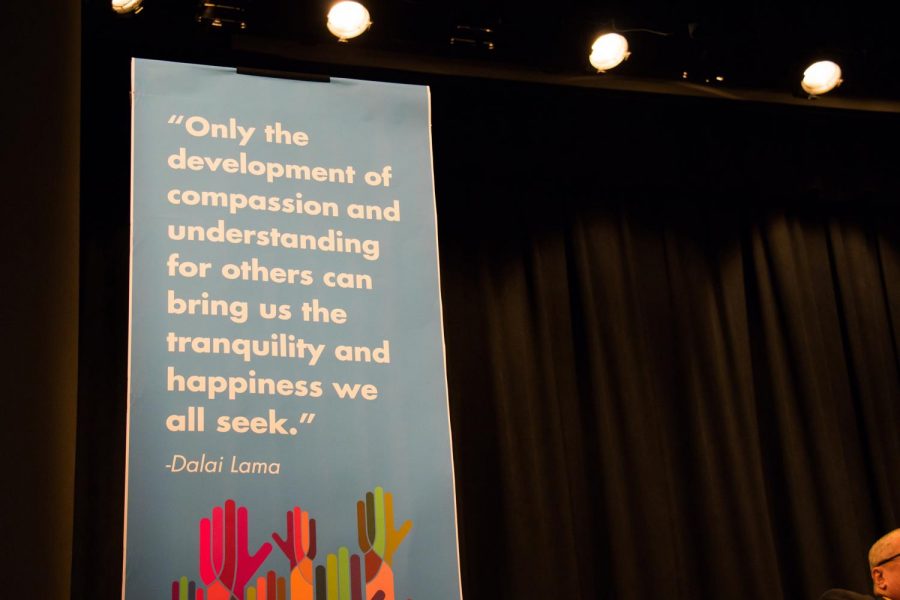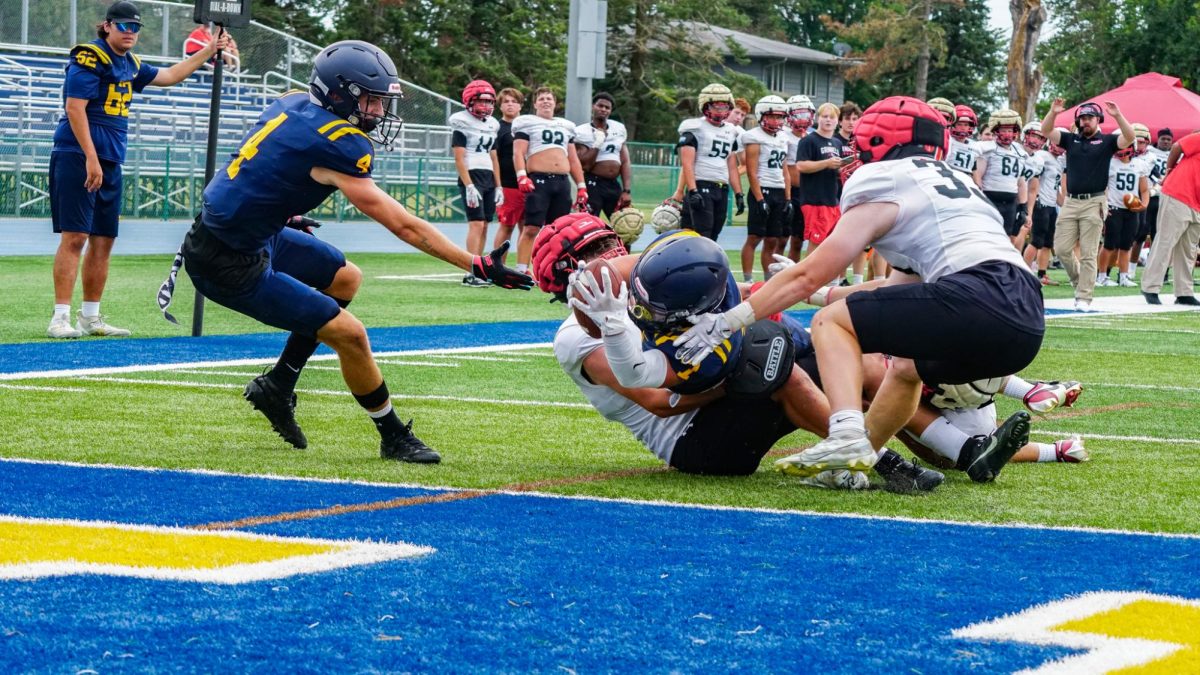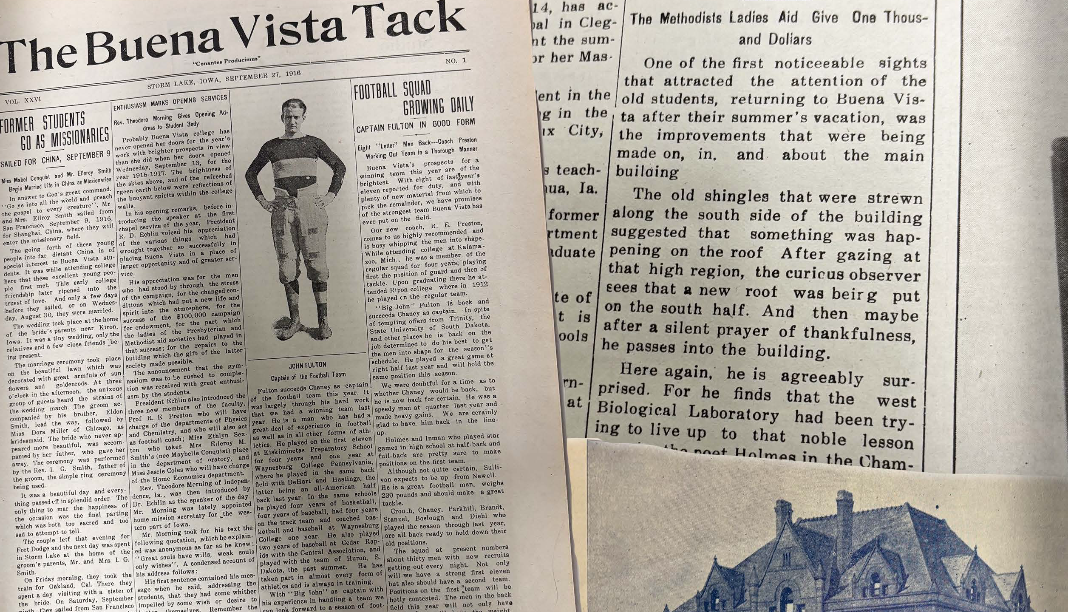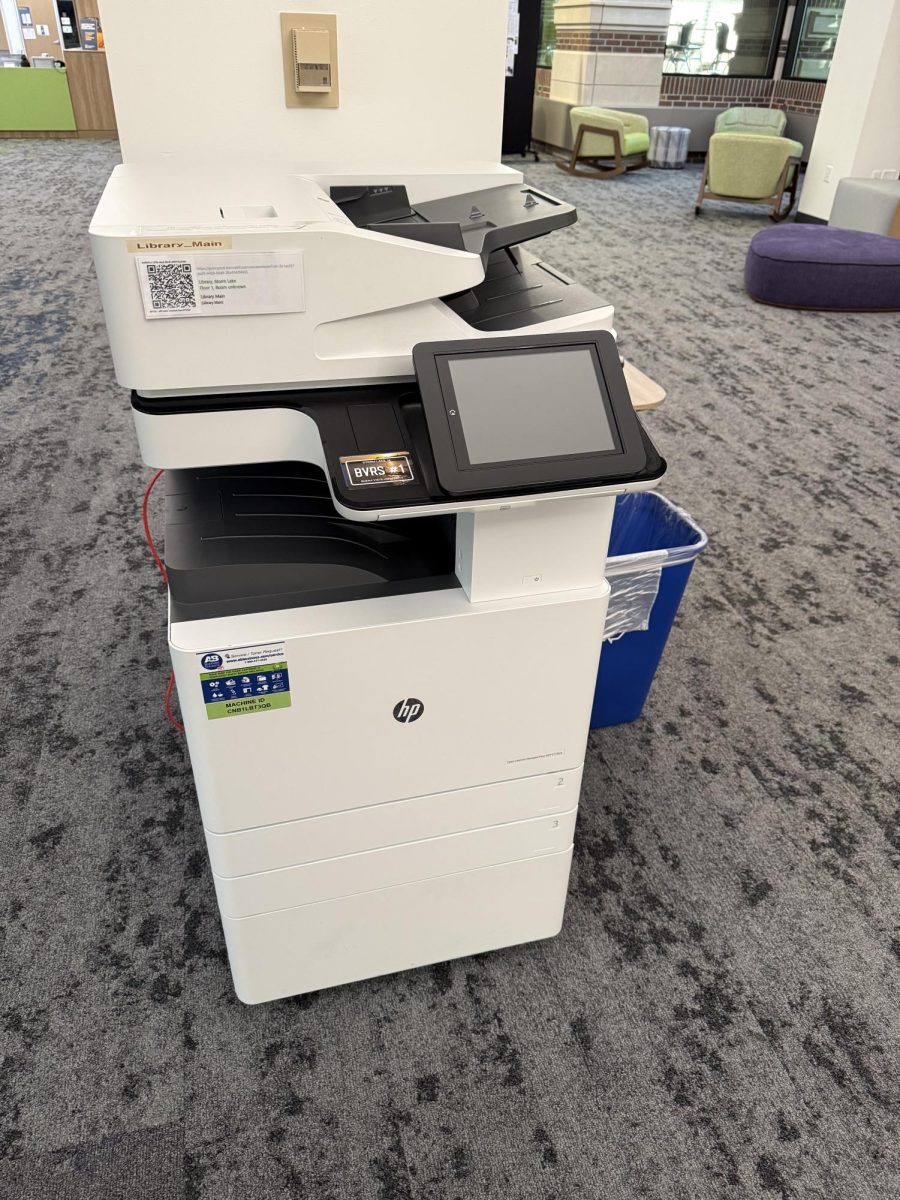BVU presents “Reaching Understanding: A Civil Exchange of Perspectives” panel on social justice
October 19, 2017
Buena Vista University (BVU), students, faculty, and staff members gathered in Anderson Auditorium the evening of Oct. 6 to hear a panel discussion called, “Reaching Understanding: A Civil Exchange of Perspectives.” The panel was a continuation of the conversation about social justice prompted by the silent protest on Sept. 30 at the BVU Homecoming football game when several players and cheerleaders knelt during the National Anthem.
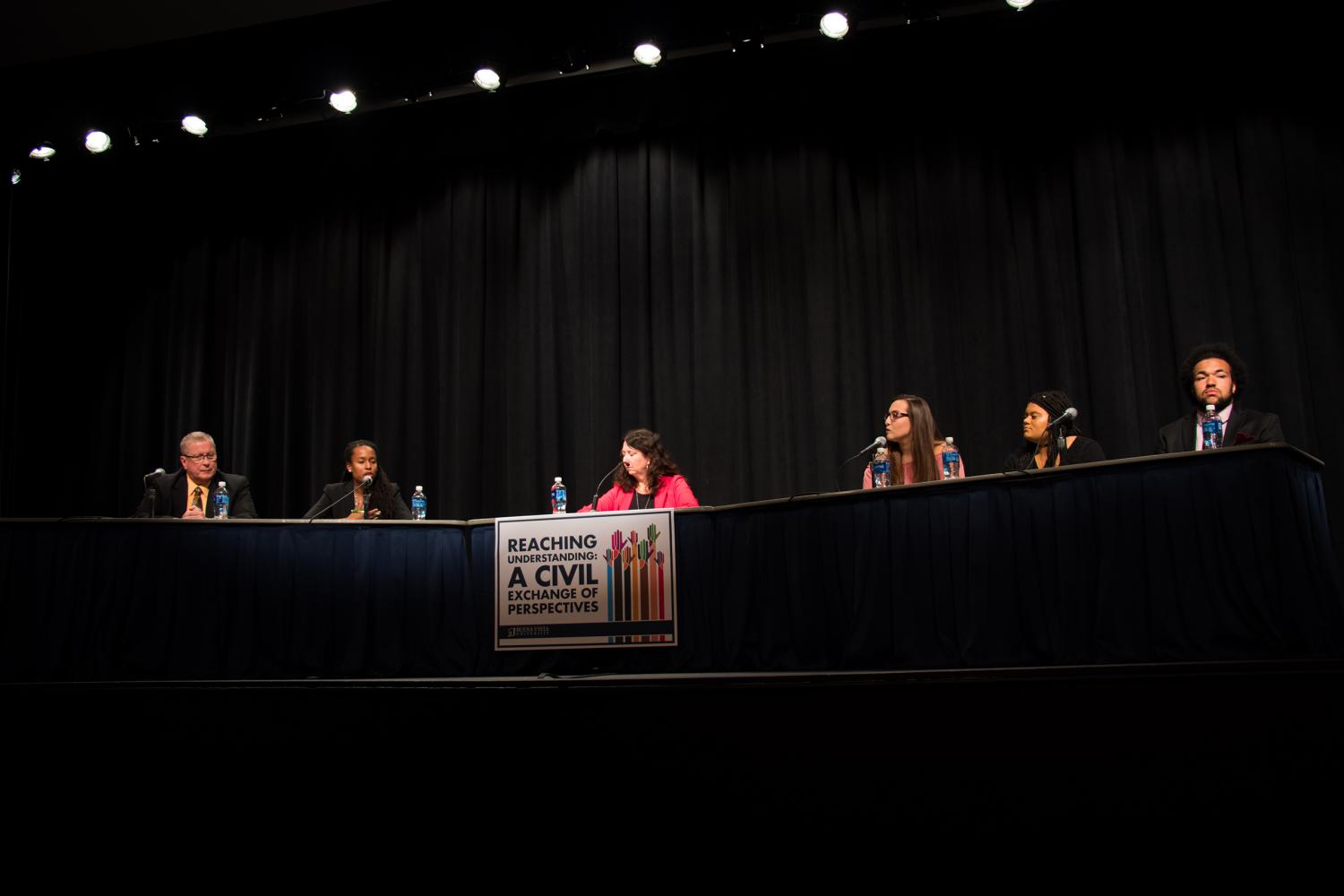
The panel members were: Storm Lake Chief of Police Mark Prosser, Associate Professor of Music Dr. Merrin Guice, BVU junior cheerleader Alyssa Donnelly, BVU sophomore cheerleader and Black Student Union (BSU) President Alyssa Parker, and BVU junior football player and BSU Vice President Davonte Johnson.
Dr. Andrea Frantz, professor of digital media, moderated the panel, and hoped to enlighten the audience about the impact national issues have when localized. Frantz said BVU was arguably one of the first private universities to participate in the protest of police brutality through the Take A Knee movement, and began the panel discussion with a call to focus on civil dialogue particularly among conflicting perspectives.
“And because there will potentially be ideas offered here tonight with which others, possibly some of you in the audience, will disagree, I will ask you to remember that this forum is about civility and actively opening a dialogue from which all of us can learn,” said Frantz.
The event was sponsored by The Office of the President as part of BVU President Josh Merchant’s commitment to “moving forward” the conversation about social injustice and was open to both the BVU and Storm Lake community. All students represented on the panel knelt during the anthem. As members of the cheerleading and football teams, the student athletes used their platform to raise awareness about and protest issues of social concern.
“I [knelt] because these are my friends, my peers, my colleagues,” said Donnelly, who has faced pushback on social media from friends and family, and also from those she doesn’t know.
All of the students have been publicly criticized through social media for their actions, and according to them, that is why the panel event was so important.
“We only care when it’s someone that we know. Why not engage with the issue before that happens? Why not stop the problem before it starts?” said Parker.
Frantz facilitated conversation that covered topics ranging from negative social media comments to the use of the ‘n’ word, sometimes delegating a question to someone specifically, allowing them to speak in their field of expertise.
Prosser spoke on behalf of law enforcement during conversation about how the Storm Lake Police Department (SLPD) engages with the community they protect and serve, arguably the most diverse in Iowa. He addressed the ways law enforcement is constantly changing and improving, making the profession a “moving target” for social issues.
“Speaking as a white police officer, it’s challenging for our profession, and confusing for me from time to time as I try to think through things,” said Prosser. “It’s clear that there are a variety of incidents of excessive use of force, both deadly and less than lethal types of force. On the flip side of that, the people I know, and the people I work with during my career, have spent their career protecting people of color.”
Prosser came to Storm Lake from St. Louis, and says his diverse experiences there helped him shape his career, and the choices he makes when building relationships with community members, particularly those of racial diversity.
“It’s not the community’s responsibility to learn about [the SLPD]. It’s our responsibility to learn about others,” said Prosser.
The SLPD has engaged in several tactics to improve the relationships between law enforcement and it’s public in Storm Lake in the last several years. First, Prosser referenced a “Diversity Task Force,” later disbanded for it’s lack of diversity as all members were white. Prosser joked that the learning curve for law enforcement in such a diverse community is consistently evolving, and strategies to reach the public must change with it.
“In the Storm Lake experience, we’ve certainly made a variety of mistakes and assumptions as our demographics have changed,” said Prosser. “All well intended, but there are things we’ve learned along the way as the community has changed.”
Prosser wants to encourage everyone to build relationships, a theme agreed on by all panel members. In particular, the students, who feel relationship building could help solve misunderstandings in dissonant dialogue.
“I think the best thing to do is to get to know each other,” said Johnson. “Police officers getting more involved in the community is a great thing because not only does it show that they care, but if you know Darius, and he’s always walking home at 2 AM and that’s his favorite black hoodie, that you’re not gonna be as suspicious if you see some guy walking down the street.”
Towards the end of the evening, the panel opened up their dialogue to the audience. Audience members submitted questions anonymously. One question that came in asked the BSU members on stage why they used “Black” Student Union, instead of something more inclusive, like the “People’s Student Union.”
Parker and Johnson, both executive members of the BSU, and having faced criticism on social media by outside negativity following their decision to take a knee, responded with the explanation that there is now more racial diversity on the BVU campus; therefore, it is necessary to have an organization that supports them.
“There’s almost one on every campus, whether that be the Black Student Union, or the Black Student Alliance. It was started because there were black people on campuses that didn’t feel like their voices were heard,” said Johnson. “There aren’t many people of color on this campus, so it’s important to make a place where we can gather and feel like they’re not alone.”
“We share things, and we learn from one another,” said Parker, who encourages all to attend their meetings whenever possible in order to continue building relationships on campus and tackling important social issues.
A main takeaway from this forum was a call to get to know one another, and to not make assumptions about those we know, or don’t know, as noted by Guice.
“That’s what it comes down to. If you have privilege, and if you can ignore it, that means you are in a privileged position to not have to experience it. And if you are in the privileged position to not have to experience it, then the only way someone is going to be able to let you know is to share the stories,” said Guice.



